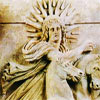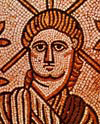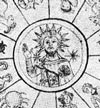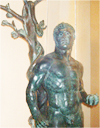What DID the Early Christians Believe?
Christians today, who affect such certainty over what their godman said and did, might be well served to pause and reflect that Christians who lived within a generation or two of their supposed saviour had no such certainty, that they speculated wildly, disagreed with each other to the point of violence, and organised rival churches.
For more than two hundred and fifty years the enthusiasts of Christ concocted astonishing fairy tales drawn from Pagan and Jewish antecedents and their own imagination.
Forget the glib assertion that the Jesus story ‘got off the ground quickly and spread rapidly.’ Let’s consider a few thorns in the crown of the godman:
Bizarre Beginnings The Assortment of Early Christian Belief


Nice Gnostics - Christian 'Mystics of Knowledge'
How the Godman is Made and Remade


Making an Apology – 'We're just like you'
Orthodoxy and the Early Church – Winners and Losers
Inconvenient fact: evidence of early Christian communities is scanty. The Christians remained a minority until well after one particular faction formed a political alliance with the State. The orthodox creed was unpopular for centuries; persecution was necessary to impose its will.

Pagans were campaigning to restore the Altar of Victory to the Senate House even into the 5th century

Now let's see:
Should we believe in an historical Hercules?
He’s mentioned by Tacitus, Josephus and others!
In short, we have as much (that is, as little) evidence for an historical Hercules as a historical Jesus!


